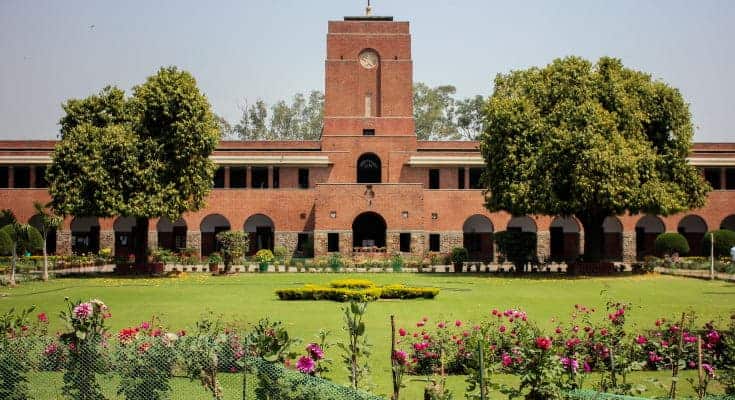With new academic sessions in full sway across DU, St. Stephen’s is still embroiled in headlines over its admissions concerning single girl child quota.
A quick recap of the situation up until now: Delhi University had initiated admissions under single girl child quota for the academic session 2024-25.
As reported by DU Beat, under the new mandate, one seat per program in every college is reserved for a single girl child to promote gender equality and inclusivity.
Haneet Gandhi, Dean of Admissions , stated:
Our primary aim for this initiative is to promote the education of the single girl child. Secondly, we are encouraging people to address population control and respect couples raising a single girl child and giving her proper education.
St. Stephen’s College, already at loggerheads with Delhi University over extra allocation percentages took legal recourse for admissions under the single girl child quota, citing the university’s interference in its admission process as unconstitutional and violative of its rights as a minority institution.
The college considered 13 subject combinations within the BA Program as a single whole, thus, reserving only one seat for a girl child across all combinations. This formulation of a distinct seat matrix by Stephen’s, different from one provided by Delhi University was violative of the university guidelines.
Thus the court ruled that,
St. Stephen’s College, being an aided minority educational institute also, cannot claim to have absolute unbridled powers to exercise discretion against the policies framed by the University to which it is affiliated.
Therefore, it was seen that although St. Stephen’s is a minority institution with a certain degree of autonomy, it must adhere to the regulatory framework set by Delhi University. While some students were admitted after the court’s decision, many remain uncertain as the dispute between the college and the university continues.
The latest development in the case is formation of a three member committee by Vice Chancellor Yogesh Mishra to be directly in contact with Principal of St. Stephen’s, John Verghese, over admissions issues including those pertaining to the single girl child quota. Constituted by Professor Harendra Nath Tiwari, Alok Pandey and Maya John, proper communication will be undertaken towards the resolution of these issues.
Featured Image Credits: Free Press Journal
Read Also: St. Stephen’s College Faces Allegations over Minority Quota Violations in Admission Process
Afza Khan








